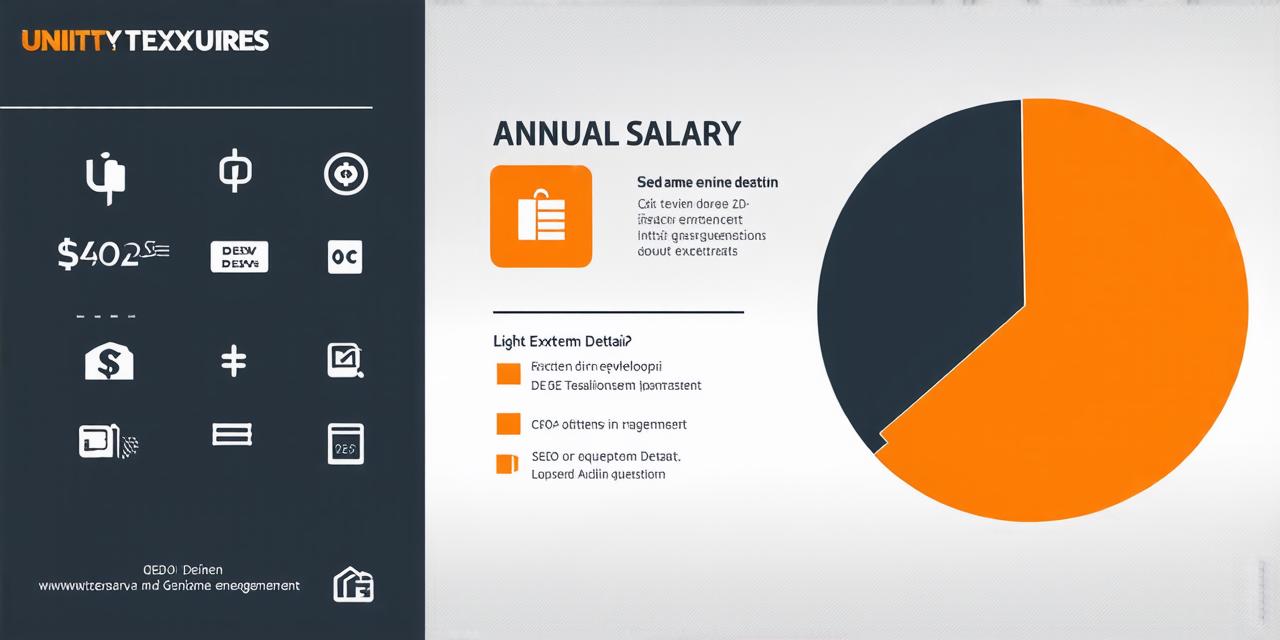Introduction:
The COVID-19 pandemic has led to a shift in the way we work and live. Many companies have adapted to remote work, allowing employees to work from home or other locations. In the gaming industry, there is a growing debate about whether game developers can work remotely or not. This article aims to explore the pros and cons of remote work for game developers and provide some insights into how they can be successful in this new working environment.
Pros of Remote Work for Game Developers:
-
Flexibility: One of the main advantages of remote work is flexibility. Game developers can create their own schedules, allowing them to work when they are most productive and balance work with other responsibilities such as family or hobbies.
-
Reduced Costs: Remote work also reduces costs for both employees and employers. Employees do not have to worry about commuting expenses or office space, while employers can save on overhead costs such as rent and utilities.
-
Increased Productivity: Some studies have shown that remote workers are more productive than office-based workers. This is due to fewer distractions, less stress and more control over the work environment.
-
Access to Talent: Remote work also allows game developers to access a wider pool of talent. They can hire from anywhere in the world, which can be particularly useful when trying to find specialized skills or expertise.
Cons of Remote Work for Game Developers:
-
Communication Challenges: Remote work can present communication challenges, as team members are not working together in the same location. This can make it difficult to collaborate and share ideas in real-time.
-
Lack of Social Interaction: Working remotely can also be isolating, leading to a lack of social interaction and a sense of disconnection from the team.
-
Difficulty in Managing Productivity: Remote workers may struggle with self-discipline and time management, which can affect productivity levels.
-
Potential for Miscommunication: Without regular face-to-face communication, there is a risk of miscommunication and misunderstandings that can lead to delays and mistakes in the development process.
Case Studies of Successful Remote Game Development Teams:
-
Ubisoft’s Assassin’s Creed Valhalla: In 2020, Ubisoft announced that its entire team for Assassin’s Creed Valhalla was working remotely. Despite the challenges of remote work, the team managed to deliver a highly successful game on time and within budget.
-
MMO Worlds: Many massively multiplayer online (MMO) games are developed by remote teams. These games require constant collaboration and communication between developers from different locations, making remote work a natural fit for this type of project.

Expert Opinions:
“Remote work is not new to the gaming industry,” says John Carmack, founder of id Software. “In fact, many of our games were developed remotely by teams around the world. However, it does require careful planning and communication to ensure that everyone is on the same page.”
“I believe that remote work can be very effective for game development,” says Jessica Foley, a game designer at Epic Games. “It allows us to tap into a global talent pool and work with developers who may not have been available otherwise.”
How Game Developers Can Be Successful in Remote Work:
-
Establish Clear Communication: Clear communication is essential for remote teams. Game developers should use a variety of tools such as video conferencing, instant messaging, and project management software to ensure that everyone is on the same page.
-
Create a Sense of Community: Remote teams can feel isolated, so it’s important to create a sense of community among team members. This can be done through regular virtual social events, such as online game nights or happy hours.
-
Set Clear Expectations and Goals: Game developers should set clear expectations and goals for their remote teams, including productivity targets and deadlines. This will help ensure that everyone is working towards the same objectives.
-
Provide Opportunities for Professional Growth: Remote work can be isolating, so it’s important to provide opportunities for professional growth and development. This can include online training, mentoring programs, or even attending virtual conferences.
FAQs:
Q: What are the main challenges of remote work for game developers?
A: Communication challenges, lack of social interaction, difficulty in managing productivity, and potential for miscommunication.
Q: Can game development be done remotely?
A: Yes, it is possible to develop games remotely, but it requires careful planning and communication between team members.
Q: What are some successful examples of remote game development teams?
A: Ubisoft’s Assassin’s Creed Valhalla and MMO Worlds teams are two successful examples of remote game development teams.
Conclusion:
Remote work is becoming increasingly popular in the gaming industry, but it presents its own unique challenges for game developers. By establishing clear communication, creating a sense of community, setting clear expectations and goals, and providing opportunities for professional growth, game developers can be successful in this new working environment. Ultimately, whether or not remote work is the right fit for game development will depend on each individual team’s specific needs and circumstances.




